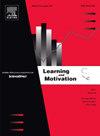Decisions to seek cognitive performance feedback: Potential determinants of feedback value and consequences for learning
Abstract
Performance feedback is essential for effective learning. Feedback contains both informational and affective properties. Following negative feedback (indicating an incorrect response), the unpleasant experience of being wrong can diminish the value of constructive information that feedback also provides. This can hinder motivation to seek feedback, which can impede learning. Therefore, research into factors that directly shape the subjective value of feedback is critical. The current study investigated potential behavioral and physiological contributors to feedback valuation and to subsequent feedback-seeking behavior. Fifty-nine participants completed a willingness-to-pay associative memory task that measured feedback valuation via trial-wise decisions to either purchase or forgo feedback during a learning phase in service of maximizing a performance-contingent monetary reward during a future test phase. Skin conductance response (SCR) was also measured during feedback decisions. Lower confidence in response accuracy significantly predicted higher likelihood of purchasing feedback during learning. Neither self-reported emotional responses to feedback nor SCR during feedback decisions predicted feedback purchases. Purchase decisions yielding negative feedback significantly predicted better performance during test. These results suggest that confidence during learning significantly impacts performance feedback valuation and should be considered when devising methods to motivate feedback-seeking in settings where learning is critical to success.

 求助内容:
求助内容: 应助结果提醒方式:
应助结果提醒方式:


